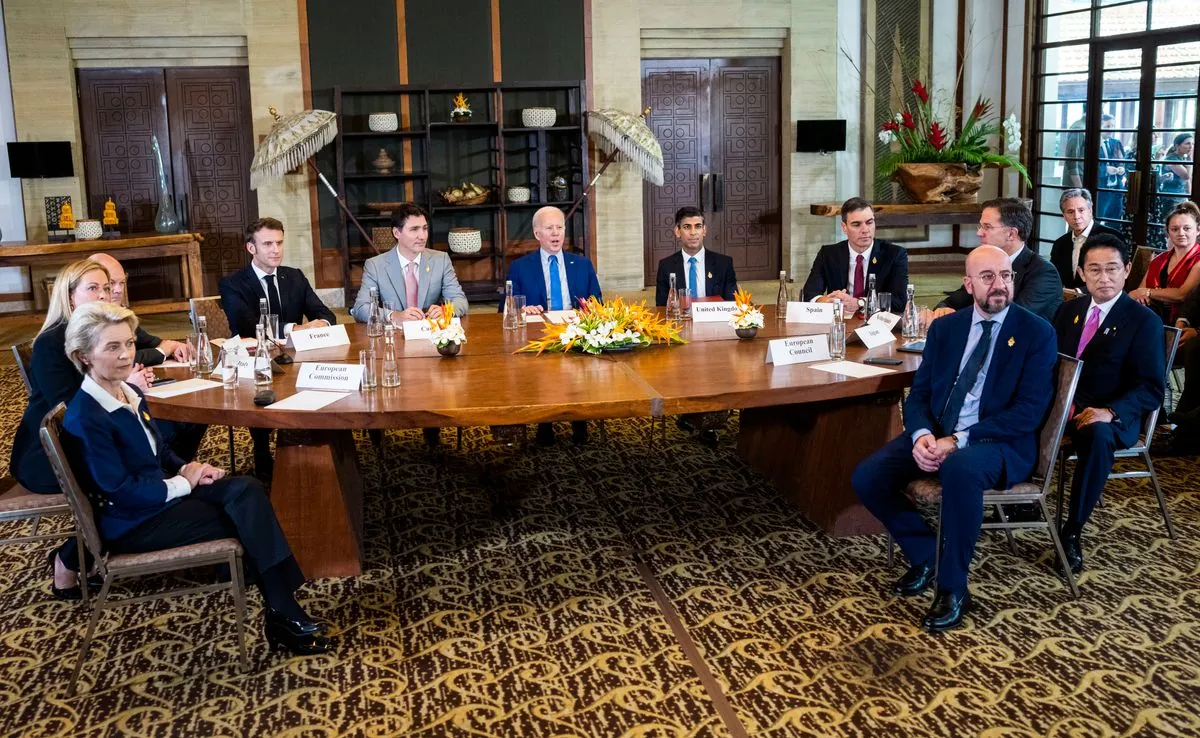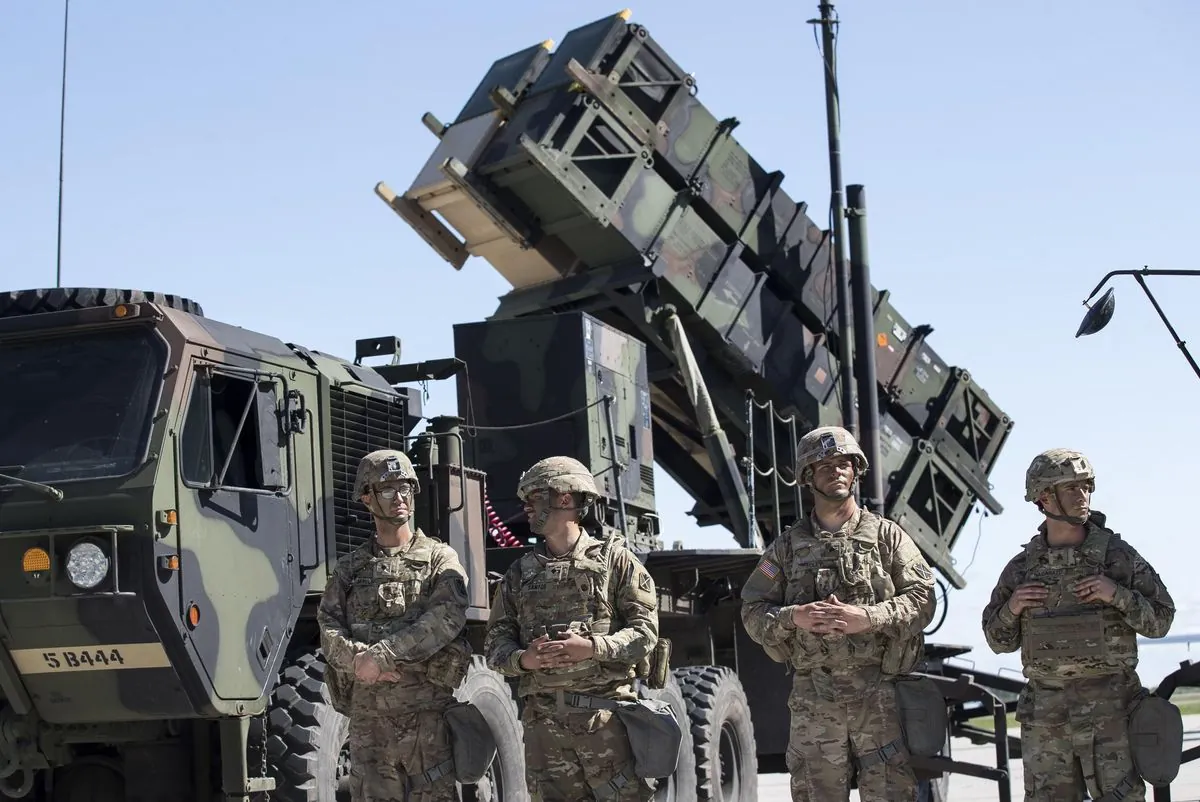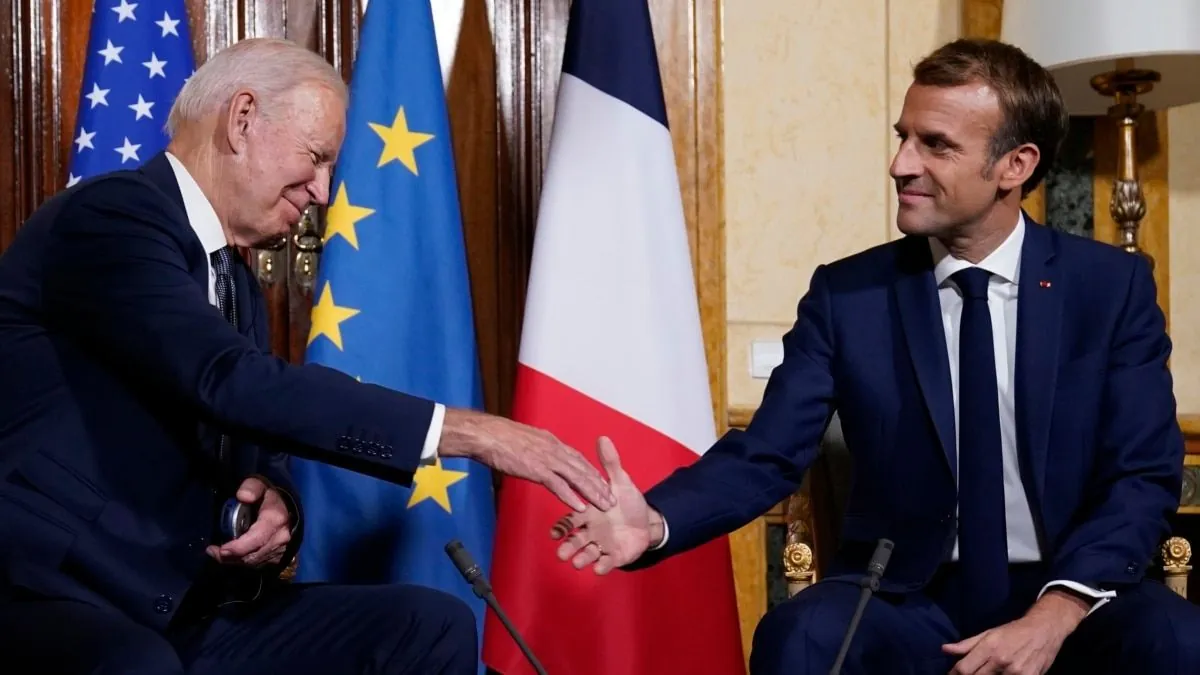US Faces Challenges in Aligning with Ukraine and Israel Amid Ongoing Conflicts
The Biden administration grapples with diverging strategies from Ukraine and Israel in their respective wars. Recent actions by both allies have left Washington scrambling to respond and reassess its support approach.

The Biden administration finds itself increasingly out of step with its wartime allies, Ukraine and Israel, as both nations pursue strategies that have caught Washington off guard. This situation highlights the challenges of supporting allies without direct military intervention, a approach some call "offshore balancing."
In Ukraine's case, a surprise counteroffensive into Russian territory has raised eyebrows in Washington. The US government was reportedly not informed beforehand, leaving officials scrambling to respond. The Pentagon is currently allowing Ukraine to strike Russian soil with guided munitions up to 40 miles in range, far less than the 200-mile range of the US Army Tactical Missile System secretly provided earlier this year.

While the US continues to provide military aid to Ukraine, with Congress approving $60 billion in additional assistance in April, the flow has been slower than Kyiv desires. This has led to frustration among Ukrainian officials, who have been pushing for more support in Washington.
Israel's recent actions have also created tension with the US. The assassination of Hamas political leader Ismail Haniyeh in Tehran occurred amid US-backed cease-fire talks, complicating diplomatic efforts. Additionally, disagreements persist over Israel's bombing campaign in Gaza and the feasibility of completely eradicating Hamas.
"At times, the bombing campaign has been indiscriminate."
The challenges faced by the Biden administration in aligning with its allies extend beyond these two conflicts. Senator Jeanne Shaheen recently described meetings with Georgian officials as "bizarre" and "very adversarial," following Georgia's passage of a Russia-style "foreign agents" law. This law prompted the State Department to suspend $95 million in aid to the country's government.
In other international news, Sudan peace talks in Geneva have faced setbacks, with key parties failing to attend initial sessions. The US has urged the Sudanese Armed Forces to join the negotiations to end the year-long civil war.
Recent revelations about the Nord Stream pipeline sabotage in May 2022 have added another layer of complexity to international relations. The operation, reportedly carried out by Ukrainian military officers and businessmen, cost $300,000 and involved six saboteurs posing as tourists on a yacht.
On a more positive note, the AUKUS allies - Australia, the United Kingdom, and the United States - have finalized a plan to streamline defense trade by creating national exemptions for most controlled goods and technologies. This move aims to facilitate the exchange of cutting-edge technologies among the three countries.
As the international landscape continues to evolve, the Biden administration faces the ongoing challenge of balancing support for allies with its own strategic interests and concerns about escalation.

In lighter news, the passing of Larry Tesler, inventor of the cut, copy, and paste commands, reminds us of the impact of technological innovations on our daily lives. Meanwhile, the Indian Navy's incorporation of yoga into their workout regimens showcases the diverse approaches to military fitness around the world.


































